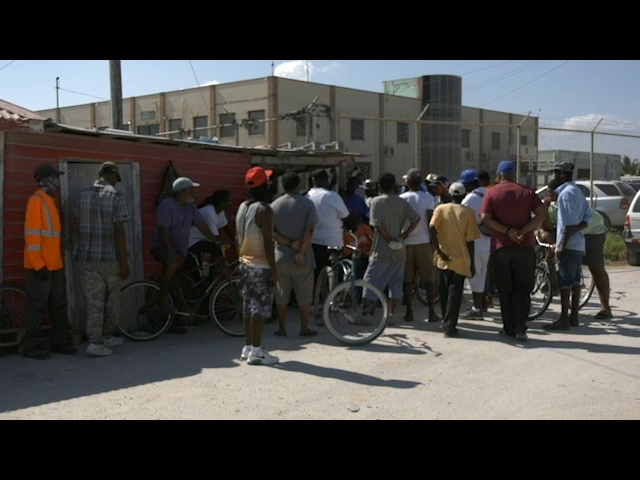The Port of Belize Limited has taken on significant losses in revenue since last Friday. That’s when stevedores walked out after demanding higher payment for lost wages when bulk sugar was rerouted to the Big Creek Port. During Wednesday’s stand-off between the stevedores and the Port, C.E.O. Arturo Vasquez told reporters that while the figures cannot yet be tallied, the losses have been significant. The stevedores, led by the Christian Workers’ Union, returned to work by day’s end, but on the premise that the Prime Minister, John Briceno will meet with their union representatives next Monday to discuss their concerns. News Five’s Marion Ali reports.
Marion Ali, Reporting
The tally on the losses that the port and the government have suffered as a result of the five-day walk-out from work has not yet been calculated, but it is quite a lot. Port of Belize C.E.O., Arturo Vasquez told the media on Wednesday that when there is an interruption of work at the facility, it has a trickling effect on everyone.
Arturo Vasquez, C.E.O., Port of Belize Limited
“Significantly. If no cargo is going out or coming in, you can imagine the effect it has on the business community and the public and the prices and all of that.”
Marion Ali
“How many ships have sailed so far?”
“The one that’s here today came on Friday and came back yesterday. Physically only two have sailed, but, in addition to that, two have cancelled – one on Monday and one on Tuesday.”
By the end of Wednesday, however, the stevedores had returned to work following a cell phone conversation between them and Deputy Prime Minister Cordel Hyde who promised to do his best to lobby on their behalf and have them get what is due to them. The stevedores want the government to pay them four point nine million dollars in compensation for their lost wages since bulk sugar was rerouted to the Big Creek Port for export. C.W.U President, Leonora Flowers is representing the stevedores in the process.
Leonora Flowers, President, Christian Workers’ Union
“He indicated that he’s willing – he’s going to try his very best to get the stevedores what is rightfully theirs, and what we have been trying to get for a while. That’s as much as I can say.”
Marion Ali
“So on Monday, you’re going to meetings with the Prime Minister and with the Deputy Prime Minister?”
Leonora Flowers
“Yes, we should on Monday.”
“And what will be discussed then?”
Leonora Flowers
“Hopefully the sugar money only and then we progress on to the C.B.A.”
The Collective Bargaining Agreement is the new terms of reference that will govern the way the port and the stevedores work together going forward. But before the port and the CWU can sit to discuss that, the stevedores want a favourable meeting with the PM on Monday.
“If you don’t get what you want on Monday, what happens next?”
Leonora Flowers
“The stevedores will be back at it again. Unfortunately, it will be up to the stevedores at that time.”
Marion Ali for News Five.
